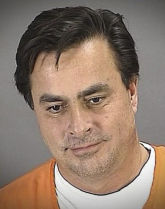The Securities and Exchange Commission filed an emergency enforcement action charging two Texas men with operating an oil-and-gas Ponzi scheme that allegedly scammed victims out of at least $18 million. Robert A. Helms and Janniece S. Kaelin, both residents of Austin, Texas, are accused of masterminding the scheme, and are facing charges that they committed multiple violations of federal securities laws. The Commission successfully obtained an emergency asset freeze against the operation, and is seeking disgorgement of all ill-gotten gains, civil monetary penalties, and injunctive relief.
According to the complaint filed by the Commission, Hels and Kaelin began soliciting investors in 2011 for Vendetta Royalty Partners ("VRP"), a limited partnership they controlled. Formed in 2009, VRP initially acquired oil-and-gas royalty interests from another limited partnership the two men controlled. However, beginning in 2011, VRP filed documents with the Commission seeking to raise $50 million through the sale of limited-partnership interests. In offering documents, potential investors were told that (1) 99% of the raised proceeds would be used to purchase oil-and-gas royalty interests, (2) that Helms had extensive experience in the oil-and-gas industry, (3) that investors would receive periodic reports on VRP's progress, and (4) no legal proceedings were pending against the company. Potential investors were told to expect a return ranging from 150% - 200% in just several months. In total, approximately $18 million was raised from nearly 100 investors in a dozen states.
However, VRP did not achieve the profitable returns promised by Helms and Kaelin. Indeed, rather than invest 99% of raised offering proceeds in oil-and-gas royalty interests, only 10% was in fact invested as advertised. These investments generated de minimus returns. The representations made to investors were also false. Helms did not have 10 years of experience in the oil-and-gas industry; rather, his sole experience came from operating VRP. Investors were never provided with periodic progress reports, and were not informed of significant pending litigation against VRP by an existing investor accusing the company of fraud. Instead, nearly $6 million was paid to existing investors in the form of "income distributions" that was, in reality, funds from new investors in a classic example of a Ponzi scheme. Millions of dollars were also allegedly misappropriated by Helms and Kaelin for their own personal benefit.
Also noted in the Commission's complaint was VRP's employment of a University of Texas undergradudate student who was introduced to potential investors as VRP's financial analyst. Helms and Kaelin allegedly told investors that the student had a college degree, and threatened to demote the student if he divulged his true educational status to investors.
After falling behind on its line of credit, VRP ultimately defaulted.
A copy of the complaint is below:
comp-pr2013-256
 Peruvian authorities have arrested an Ohio man wanted by the Federal Bureau of Investigation since 2003 on charges he masterminded a massive Ponzi scheme that took in at least $65 million from victims. Eric Bartoli, 59, was arrested by Peruvian police after leaving his oceanfront home in Lima - two years after U.S. authorities requested his extradition and CNBC featured Bartoli on "American Greed: The Fugitives." While Bartoli faces fraud charges in Peru, it is expected that he will be extradited back to the United States, where he faces an October 2003 indictment on charges of money laundering, securities fraud, wire fraud, conspiracy and attempted tax evasion. Additional charges are also likely as a result of Bartoli's decision to flee.
Peruvian authorities have arrested an Ohio man wanted by the Federal Bureau of Investigation since 2003 on charges he masterminded a massive Ponzi scheme that took in at least $65 million from victims. Eric Bartoli, 59, was arrested by Peruvian police after leaving his oceanfront home in Lima - two years after U.S. authorities requested his extradition and CNBC featured Bartoli on "American Greed: The Fugitives." While Bartoli faces fraud charges in Peru, it is expected that he will be extradited back to the United States, where he faces an October 2003 indictment on charges of money laundering, securities fraud, wire fraud, conspiracy and attempted tax evasion. Additional charges are also likely as a result of Bartoli's decision to flee.
